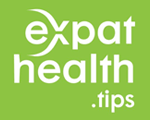Hospitals, clinics and emergency services
Firstly, if you are looking to obtain medical insurance in Chile you will need an RUT (Chile’s tax identification for foreigners), or RUN (National Identification for Chileans or expats with residency). You cannot enroll in either the public or private healthcare schemes without one of these forms of identification, but an international policy will allow you access to private facilities.
Once you have one of these, you may need to decide on public vs private (public care is not available to non-residing expats). One important distinction in-country:
- A ‘Hospital’ is publically funded.
- A ‘Clinica’ is a private medical institution, often with better quality services.
Both systems have emergency facilities, and these will attend to your needs on an urgency basis (Don’t show up complaining of a cold if you want to be seen quickly!). A form (pagare) is required on arrival guaranteeing payment of fees when billed, and health insurance details will be requested.
Seeing a doctor in Chile
Less urgent medical enquiries at clinicas are overseen by doctors, and unlike nationalised healthcare systems elsewhere, Chile does not operate a primary care system of localised general doctors. ‘Family doctors’ do exist but they are rare. Instead, you should check with your insurer to find out which doctor is recommended for your condition, and whether their services are covered by your insurance. Maternity care is handled separately by Matronas, and is usually available faster than seeing a regular doctor.
To see a doctor will require you to bring a few things:
- Identification; either a RUT/RUN, or a passport for international health insurance
- Payment; credit card ideally, as some clinicas will not accept debit cards or cash (if you are not covered by Chilean insurance, you will be asked to pay ‘Particular’)
Remember to keep any receipts, as these will be used to reimburse you by your insurer. You may also be given a Health Report giving the details of your condition and treatment, signed by the doctor. Keep copies of both types of document for your records and insurance purposes.
There are English speaking doctors in Chile but they are rare and often to be found in Santiago and its expat districts. If you require a bi-lingual professional, expat communities are often all too happy to recommend one as they are in such short supply, and the US and Canadian embassies in Santiago have lists of suitable doctors.
For further information in English about health when abroad visit Expat Health Tips: https://expathealth.tips/
Useful telephone numbers
- Ambulance service - 131
- Fire service - 132
- Police - 133
- H.E.L.P. (Private ambulance service) - 631-0310
- Search and rescue - 697-1670




